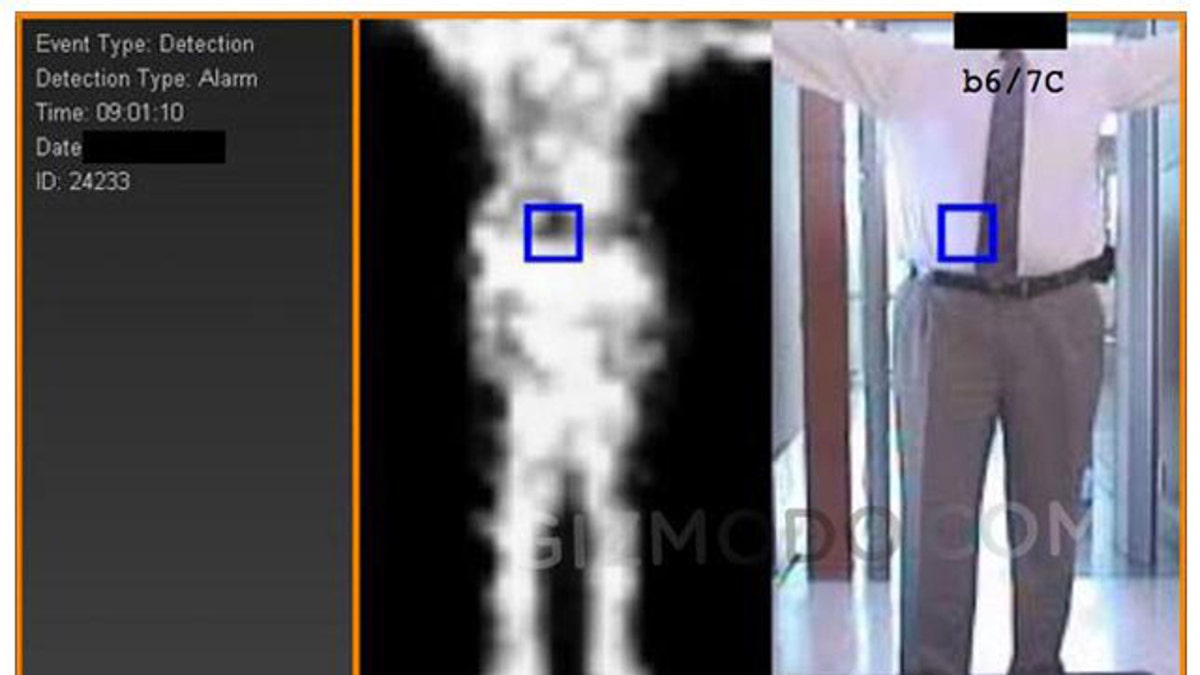
U.S. Marshals in a Florida Federal courthouse saved 35,000 images from their full-body scanners -- images that have been leaked to tech news site Gizmodo. (Gizmodo)
A new revelation could make the angry debate about the use of full-body scanners at airports even angrier: Some government agencies have improperly stored images from those scanners -- and those pictures have been made public.
Gizmodo, notorious for leaking the first photos of the newest generation Apple iPhone, has revealed the images of 100 people taken from a U.S. Marshal in a Florida Federal courthouse who had stored more than 35,000 images from a full body scanner.
The images don't come from the z-backscatter scanners in airports, which privacy advocates say take nearly naked photos of people. Rather, they come from a millimeter wave scanner, and the images are hardly high-resolution pictures of naked bodies.
But they are images of public servants and private citizens that the Transportation Security Administration says are impossible to make public.
"We understand that it will be controversial to release these photographs," Gizmodo wrote on its website. "But identifying features have been eliminated. And, fortunately for those who walked through the scanner in Florida last year, this mismanaged machine used the less embarrassing imaging technique."
The pictures come from a Brijot Imaging Systems machine and were obtained by a freedom of information request after it was recently revealed that U.S. Marshals operating the machine in an Orlando courthouse had improperly saved images of the scans of public servants and private citizens.
The leaked photos demonstrate the security limitations of not just this particular machine, but millimeter wave and X-ray backscatter body scanners operated by federal employees in our courthouses and by TSA officers in airports across the country. And they seem to run counter to the officially stated policy of the TSA.
The TSA's website states that "advanced imaging technology cannot store, print, transmit or save the image, and the image is automatically deleted from the system after it is cleared by the remotely located security officer."
Whatever the stated policy, Gizmodo wrote, it's clear that it is trivial for operators to save images and remove them for distribution if they choose not to follow guidelines.








































